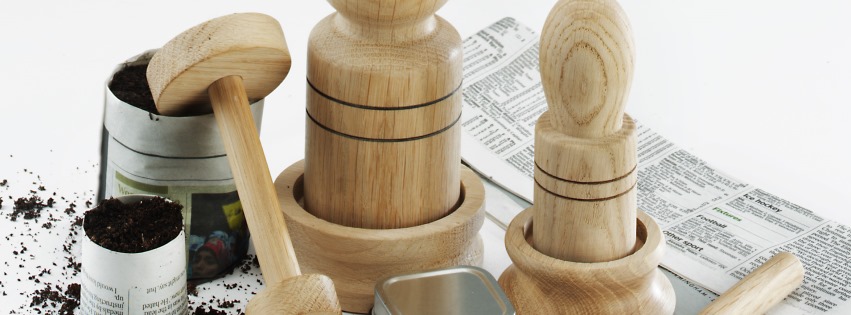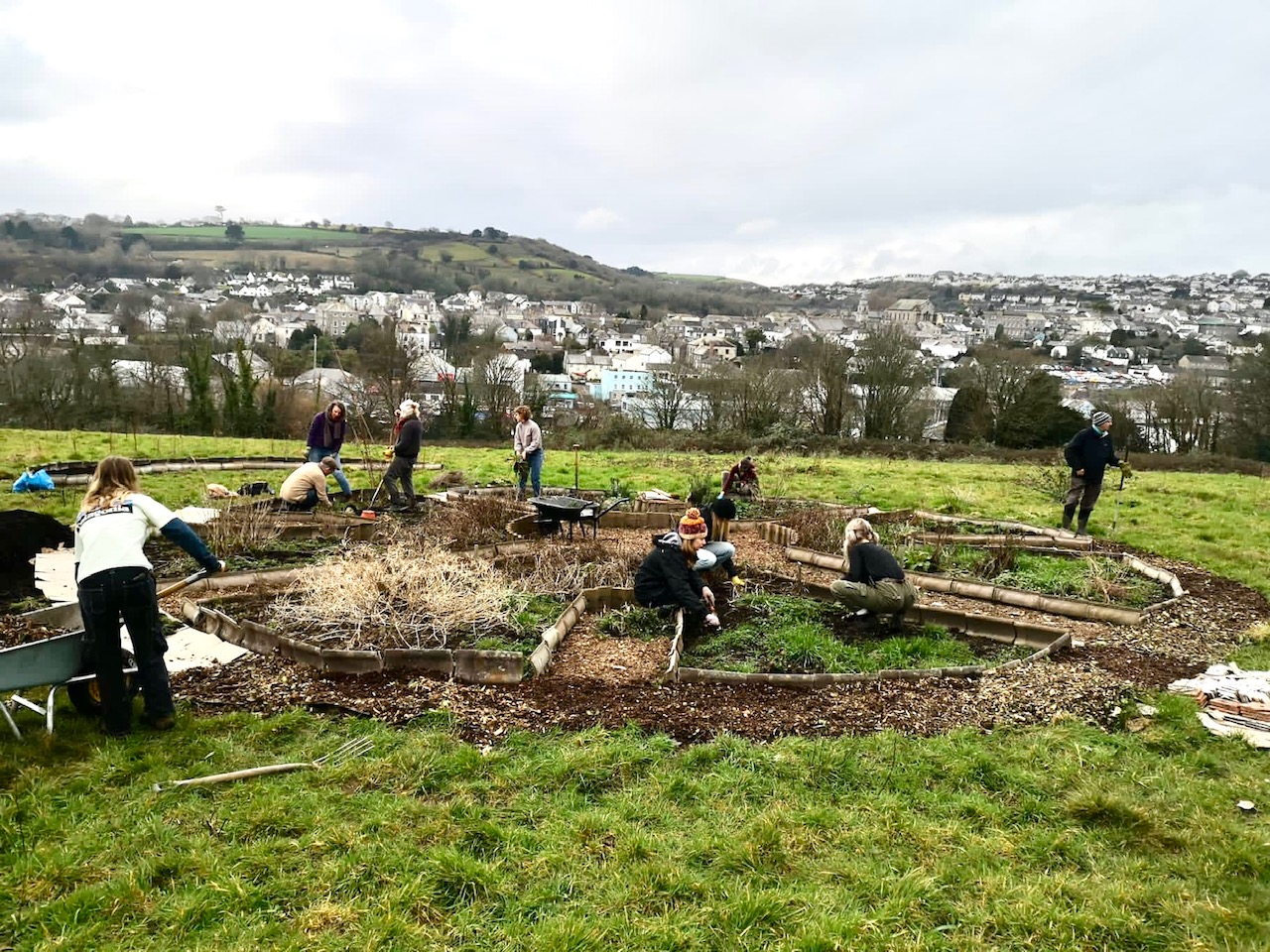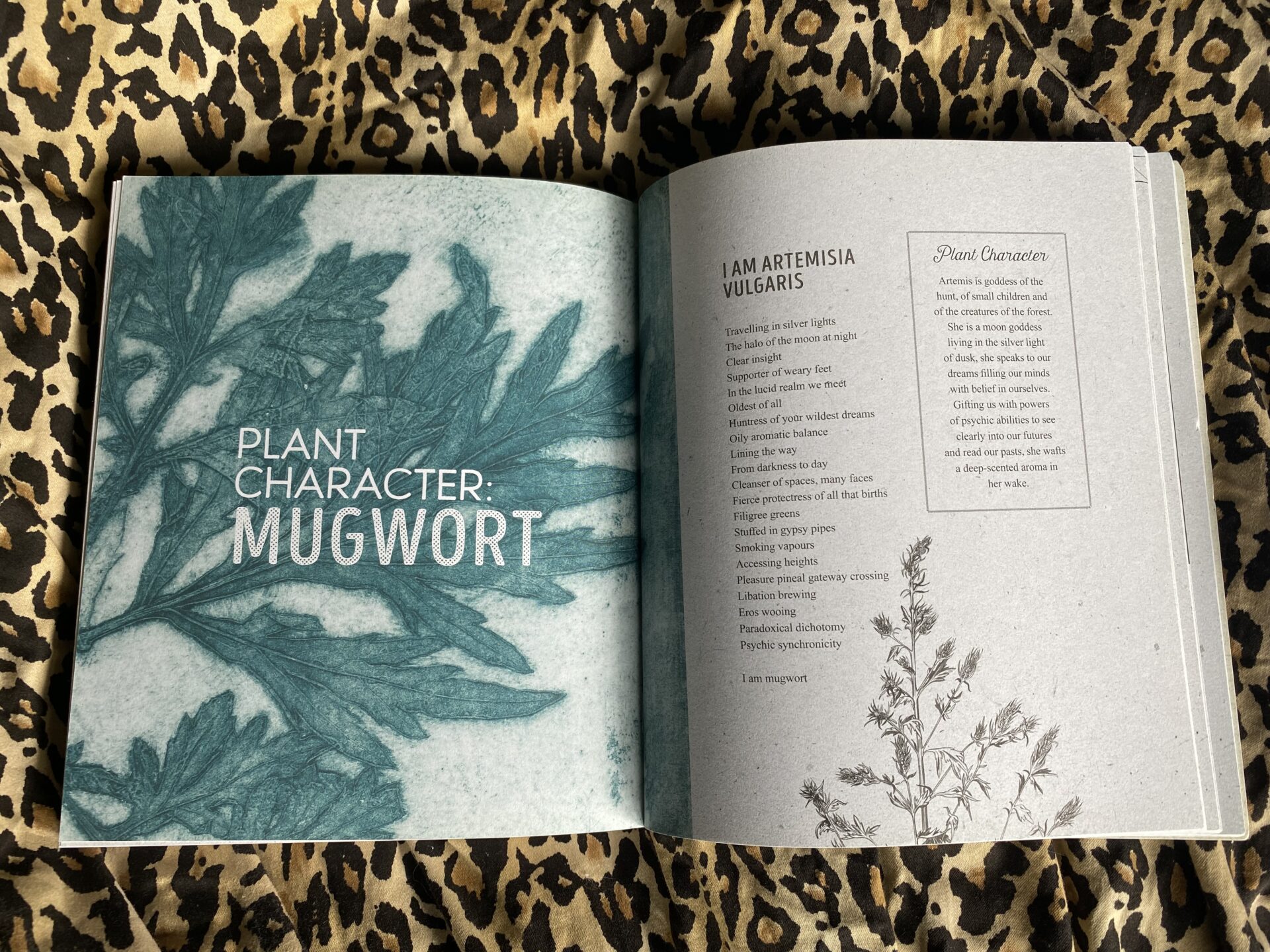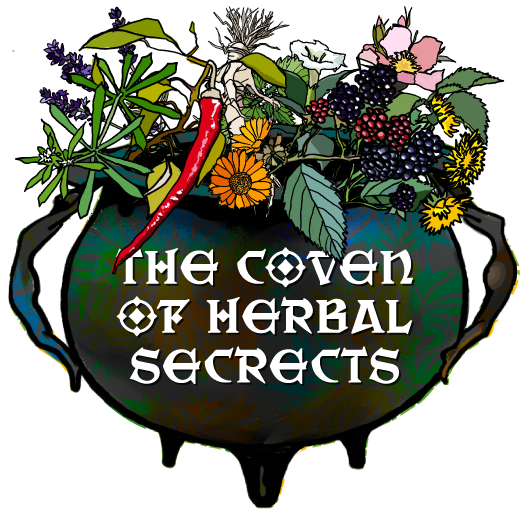by Jane Vere-Hodge
Nether Wallop Trading designs and develops innovative, eco-friendly kitchen and garden tools and gifts. Owner, Janes, tells their story.
I’ve always had a passion for trees – trees I could climb, tree houses, trees that just looked beautiful. And I loved wood. From being a child, I collected wooden things – little figures, boxes and wooden spoons. I little expected to turn my love of wood into a business, but this is the story of the Nether Wallop Trading Company.
Like a lot of businesses, Nether Wallop Trading started with an answer to a problem. The problem was that I’d moved to a house with a neglected garden and, in a fit of Spring-inspired enthusiasm, I’d bought packets of seeds but that was it: I had no tools, no propagating gear and certainly no pots to plant them into. But one evening a week, I escaped domesticity for a wood-working course, and it was at the wood-turning lathe that I worked out a way to create a device for making pots. It was very simple and only required strips of newspaper to make the pots for all the seeds I had bought. It worked brilliantly and, within weeks, my windowsills were full of tiny plants ready to plant out.
I didn’t immediately realise what a terrific invention I’d stumbled upon. Practically, the beauty of paper pots, other than the fact that they are made from waste paper, is that once seedlings have been hardened off, the pots are planted straight into the soil. The roots are undisturbed, given a certain amount of protection, and the pot biodegrades.
Gardeners were immediately intrigued. My children loved making the pots, and their teachers saw how they could use it to introduce ideas of sustainability. The grow-your–own movement was taking off. The time was right to introduce the Paper Potter to a larger audience!
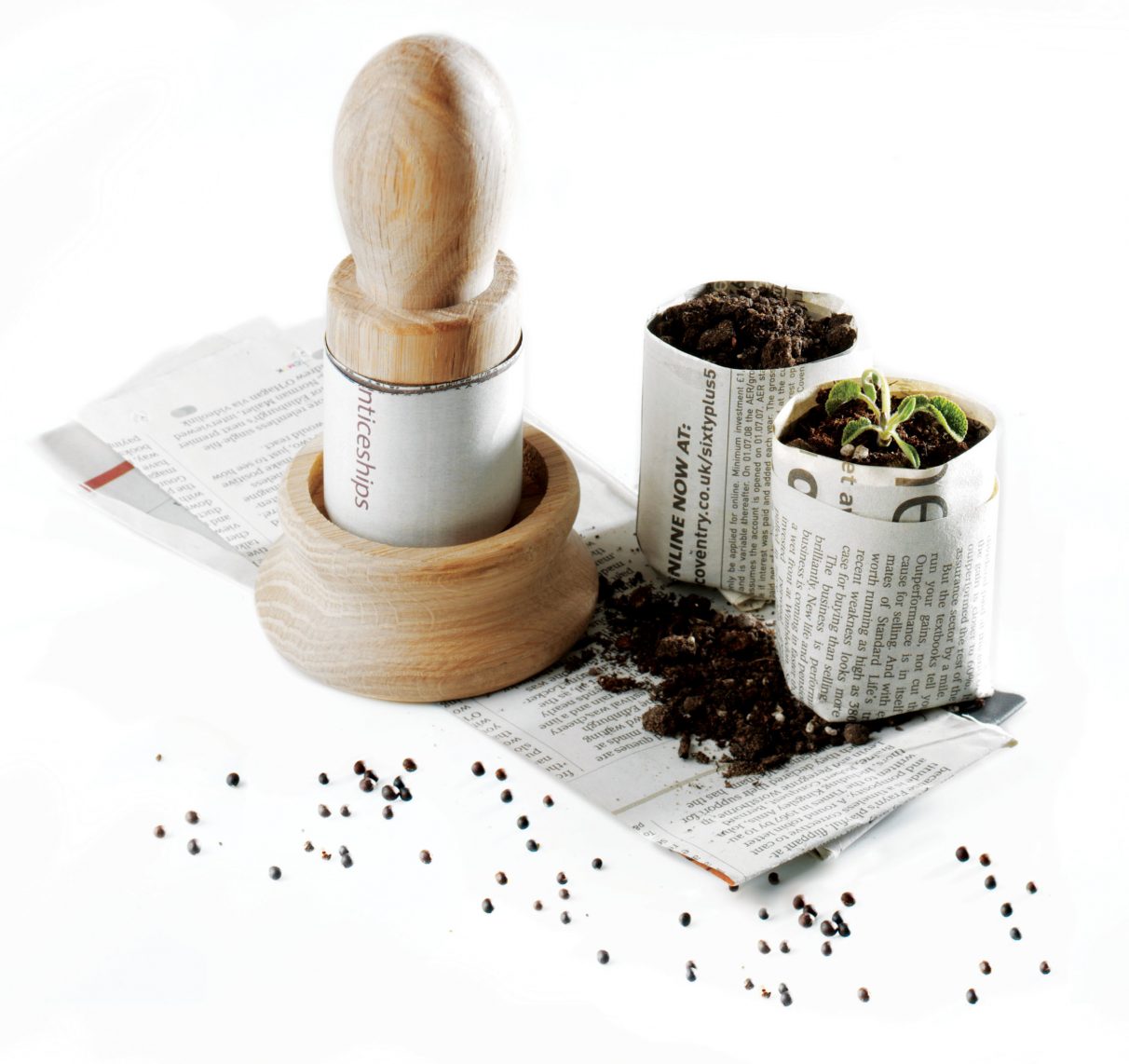
I called the company Nether Wallop Trading after the Hampshire village where I lived. It’s a very English name and it seemed to reflect the country’s gardening heritage. It’s also quirky and memorable.
Next I established a production line. I began by having the Paper Potter made by hobby woodworkers in sheds. Then, I found a group of young unemployed guys who, with the help of The Prince’s Trust, were starting a carpentry workshop.
It was very important to me that the Paper Potter was made from oak – I wanted a hardwood that would stand up to a lot of use, and which drew on the heritage of gardening tools from across the years – but I also wanted the wood to be from a sustainable source. So as the company grew, and other products were added to the range, we joined the FSC, the body that certifies sustainably-produced wood, and used their network of members to find suitable manufacturers.
This insistence stood me in good stead as Nether Wallop Trading grew, helping me secure orders from organisations including Oxfam, the National Trust, and the Woodland Trust, as well as organisations more known for their gardening tools and products.
I realised early on that new ideas would have to be brought into production. As I was learning to garden, I found that a lot of products that I used could be improved. Gardening is a wonderful time to think. And when faced with practical problems in the veg plot, improvisation is key. I started to design various new and amended products; prototypes were made, tested and put into production.
Caro joined me in running Nether Wallop Trading in 2011. Her interest in growing came out of an interest in cooking. She was focused on growing fruit and vegetables with good flavour, and we realised that, very often, gardeners are also cooks who have a particular interest in the taste of their produce. Supermarkets have suppressed the knowledge and experience of seasonality, and with it the intensity of taste of home-grown vegetables can bring. If you are lucky enough to garden, it’s quite likely you cook your produce. We saw an opportunity to develop a garden-to-kitchen range that would appeal to the preserving and cooking side of home-grown produce.
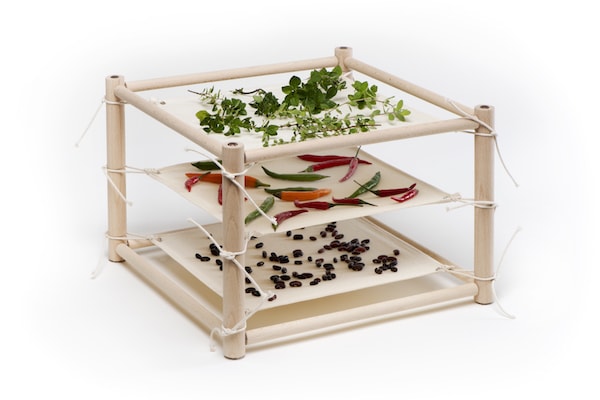
One of the products we designed was a domestic herb dryer. We’d spent some time in the Andes and had seen farmers drying their harvests on huge sheets. We devised a dryer on which you can dry herbs, but also chillies, mushrooms and beans for use throughout the year. This isn’t the only bonus; drying without heat hugely intensifies the flavour and colour of the produce.
To develop the culinary inspiration even more, we came up with our Q Bowl and Herb Crusher. This is a set of three hinged bowls which form a cube, but which can be detached for use, and an innovative double-ended crusher for pounding your herbs, chillies and seeds. It’s very satisfying to use.
We use two different hardwoods for our product range. We use oak for its great strength and solidity. It’s known as the king of British Trees and is ideal for making our garden tools – not least our garden labels which are stuck in the ground to mark the plants all season long. However, it is from beech, the Queen of British trees, that we make our kitchen utensils. It has naturally anti-bacterial properties, and has been the traditional wood used for chopping boards and butcher’s blocks for centuries.
Nether Wallop Trading has benefitted hugely from British gardening heritage. Our gardens – big and small – are celebrated across the world. The Royal Horticultural Society, through events such as the Chelsea Flower Show and gardens such as Wisley and Rosemoor, reinforces the sense that the British understand growing.
By building on this heritage, drawing on tradition, on quality and on age-old materials, we have built a reputation which has enabled us to now export our tools and kits to Europe, Scandinavia, the USA and Japan.
I would never have believed that a practical solution to seed sowing all those years ago would lead to introducing so many people to gardening in a sustainable way.

